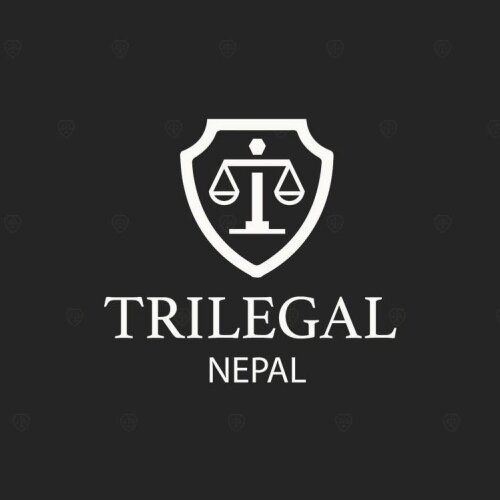Best Sustainable Finance Lawyers in Kathmandu
Share your needs with us, get contacted by law firms.
Free. Takes 2 min.
List of the best lawyers in Kathmandu, Nepal
About Sustainable Finance Law in Kathmandu, Nepal
Sustainable finance relates to incorporating environmental, social, and governance (ESG) criteria into financial services to ensure lasting positive impact for society and the environment. In Kathmandu, Nepal, sustainable finance is gaining traction as the government, banks, investors, and enterprises increasingly recognize the importance of responsible investment. The field encompasses green bonds, environmental and social risk assessment, and climate-resilient projects, all of which require careful regulatory compliance and expert legal guidance. The focus is on promoting investments that not only generate financial returns but also support environmental protection and social equity, aligning with Nepal’s commitments under international agreements and national goals such as the Sustainable Development Goals (SDGs).
Why You May Need a Lawyer
Navigating the landscape of sustainable finance in Kathmandu can be complex due to evolving local policies, environmental guidelines, and compliance requirements. People may need a lawyer in situations such as:
- Structuring or investing in green bonds or climate funds
- Ensuring compliance with environmental regulations for bank loans and investments
- Assessing and managing ESG risks in business transactions
- Negotiating public-private partnerships for clean energy projects
- Drafting contracts for carbon trading or renewable energy investments
- Obtaining regulatory approvals for sustainable finance initiatives
- Resolving disputes over non-compliance with sustainability standards
Legal expertise is crucial to protect your interests, ensure due diligence, and successfully implement sustainable finance projects within the city's regulatory framework.
Local Laws Overview
Kathmandu, as Nepal's capital, falls under national regulations concerning sustainable finance, with additional oversight ensured by Nepal Rastra Bank (NRB) and relevant ministries. Key legal-policies include:
- Green Banking Guidelines by Nepal Rastra Bank, encouraging banks to integrate environmental risk management
- Banking and Financial Institutions Act (BFIA), with provisions for responsible lending and risk management
- Environmental Protection Act and its Regulations, requiring Environmental Impact Assessments (EIAs) for significant development projects
- Securities Act and guidelines for sustainable investment securities like green bonds
- National directives in line with Nepal’s commitments under the Paris Agreement and the SDGs
- Public procurement rules favoring sustainable criteria in government contracting
Local laws are evolving, with increasing focus on integrating sustainability into financial sector policy, reporting, and risk frameworks. Keeping up-to-date with these changing regulations is crucial for compliance and successful sustainable finance activities.
Frequently Asked Questions
What is sustainable finance?
Sustainable finance involves making investment decisions that consider environmental, social, and governance (ESG) factors in addition to financial return, aiming for long-term benefits for people, the planet, and the economy.
What laws regulate sustainable finance in Kathmandu, Nepal?
Sustainable finance is primarily regulated under the Green Banking Guidelines by the Nepal Rastra Bank, the Environmental Protection Act, the Banking and Financial Institutions Act, and Securities Regulations for green investment vehicles.
Do I need legal advice before investing in green bonds?
Yes, legal advice is important to ensure compliance with regulatory requirements, proper due diligence, and to understand the rights and responsibilities attached to the investment.
What are Environmental and Social Risk Assessments?
These are evaluations required for certain financial transactions or projects to gauge their potential environmental and social impacts, often stipulated by banks or regulators under Nepalese law.
How are banks in Kathmandu involved in sustainable finance?
Banks are increasingly required to assess environmental and social risks when granting loans, finance green projects, and report on their sustainability practices as per the Green Banking Guidelines.
What is a green bond?
A green bond is a fixed-income instrument specifically earmarked to raise money for climate and environmental projects, governed by the Securities Act and relevant NRB guidelines.
How can businesses in Kathmandu benefit from sustainable finance?
Businesses can access favorable financing, improve reputation, and reduce regulatory risks by adopting sustainable practices and meeting ESG criteria required by financial institutions and investors.
Are there incentives for sustainable investments in Nepal?
Yes, there are policy incentives such as concessional lending rates for green projects and eligibility for development financing supported by international agencies or government schemes.
What legal documents are needed for a sustainable finance project?
Key documents include environmental impact assessments, loan agreements with ESG terms, compliance certifications, sustainability reports, and contracts outlining monitoring and reporting requirements.
What should I do if a project or investment violates environmental laws?
You should seek immediate legal advice. Violations can result in penalties, loss of licenses, or reputational harm. A lawyer can help address compliance issues or represent you in investigations and disputes.
Additional Resources
Several organizations and authorities in Kathmandu, Nepal, can provide information or guidance on sustainable finance:
- Nepal Rastra Bank - For regulatory guidelines and green finance policies
- Securities Board of Nepal - For information on sustainable investment securities
- Ministry of Finance and Ministry of Forests and Environment - For policies and incentives related to green investment
- Investment Board Nepal - For facilitation of large-scale sustainable projects
- Federation of Nepalese Chambers of Commerce and Industry (FNCCI) - For sustainable business initiatives
- International Finance Corporation and World Bank country offices - For technical support and funding opportunities
These bodies can offer guidance, regulations, and sometimes funding opportunities related to sustainable finance.
Next Steps
If you need legal assistance with sustainable finance in Kathmandu, here is what you can do:
- Identify your specific needs, such as contract review, compliance audit, or project structuring
- Prepare relevant documents like business plans, environmental impact assessments, and financing proposals
- Consult a lawyer or law firm with expertise in sustainable finance, environmental law, or financial regulation
- Discuss your goals, questions, and any concerns you may have about the applicable laws or processes
- Follow the lawyer’s guidance on regulatory applications, risk management, and compliance measures
- Keep updated on evolving sustainable finance laws and policies to align your projects and investments accordingly
Taking these steps will help ensure your sustainable finance endeavor in Kathmandu proceeds lawfully and successfully, maximizing both financial returns and positive environmental or social impact.
Lawzana helps you find the best lawyers and law firms in Kathmandu through a curated and pre-screened list of qualified legal professionals. Our platform offers rankings and detailed profiles of attorneys and law firms, allowing you to compare based on practice areas, including Sustainable Finance, experience, and client feedback.
Each profile includes a description of the firm's areas of practice, client reviews, team members and partners, year of establishment, spoken languages, office locations, contact information, social media presence, and any published articles or resources. Most firms on our platform speak English and are experienced in both local and international legal matters.
Get a quote from top-rated law firms in Kathmandu, Nepal — quickly, securely, and without unnecessary hassle.
Disclaimer:
The information provided on this page is for general informational purposes only and does not constitute legal advice. While we strive to ensure the accuracy and relevance of the content, legal information may change over time, and interpretations of the law can vary. You should always consult with a qualified legal professional for advice specific to your situation.
We disclaim all liability for actions taken or not taken based on the content of this page. If you believe any information is incorrect or outdated, please contact us, and we will review and update it where appropriate.

















